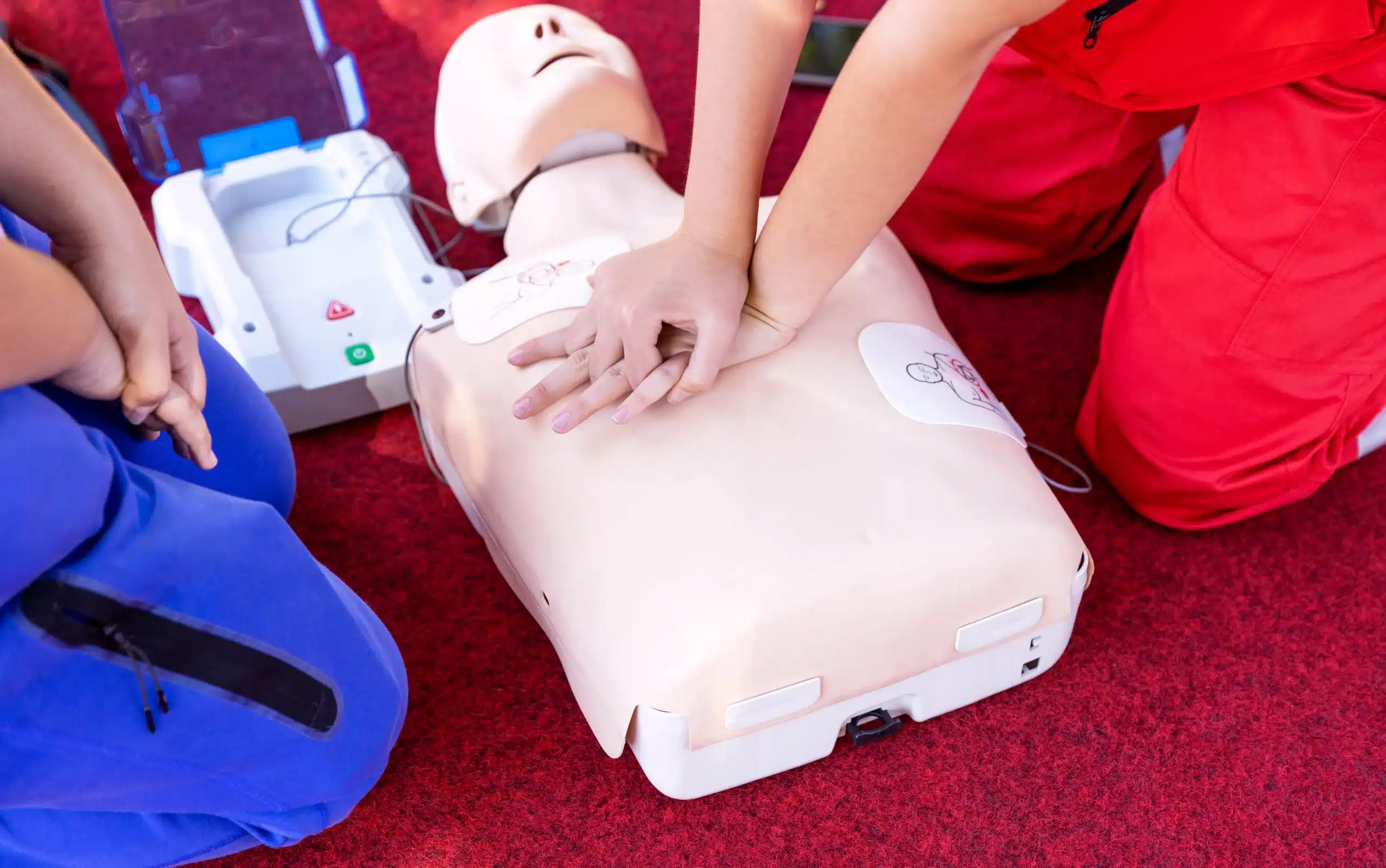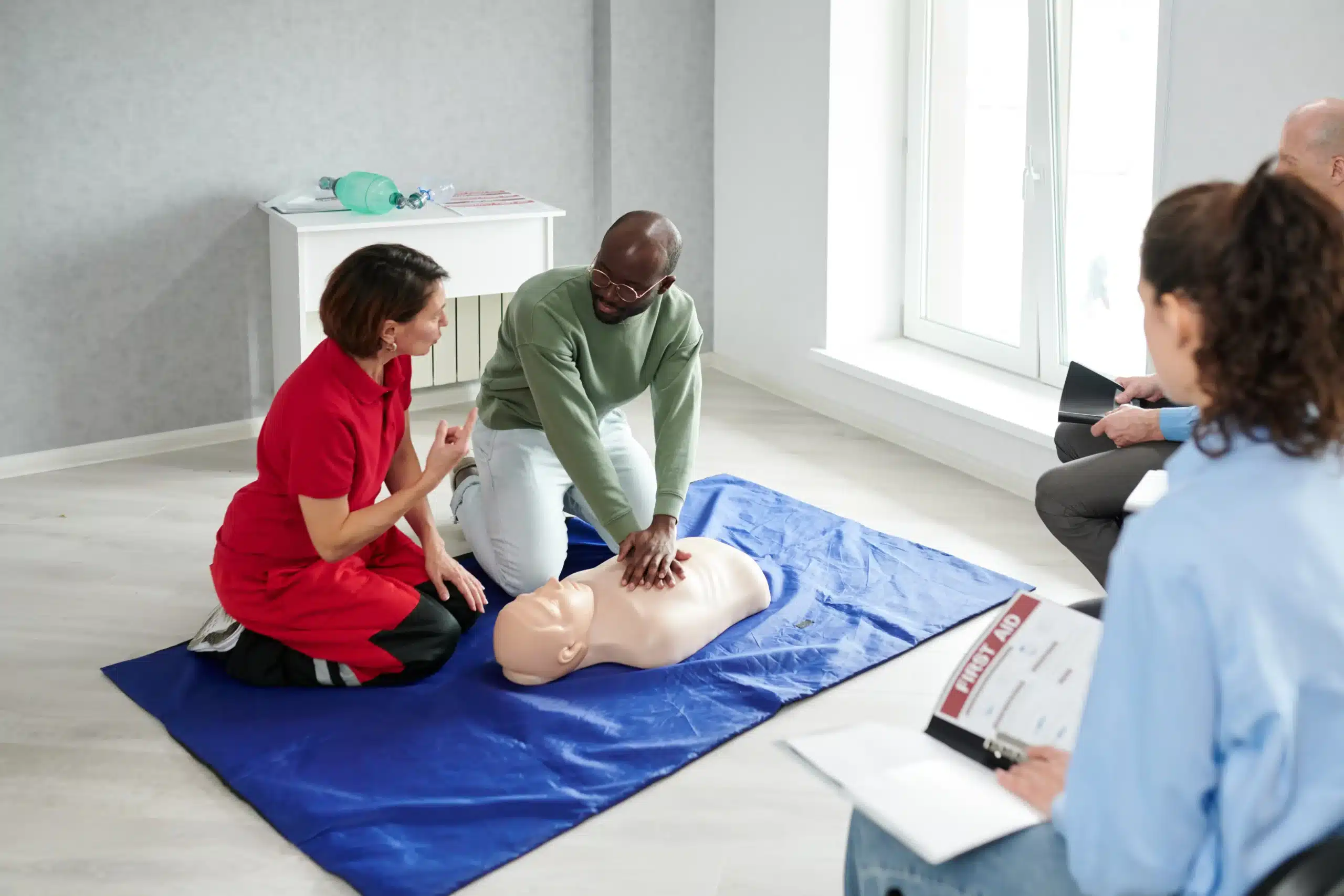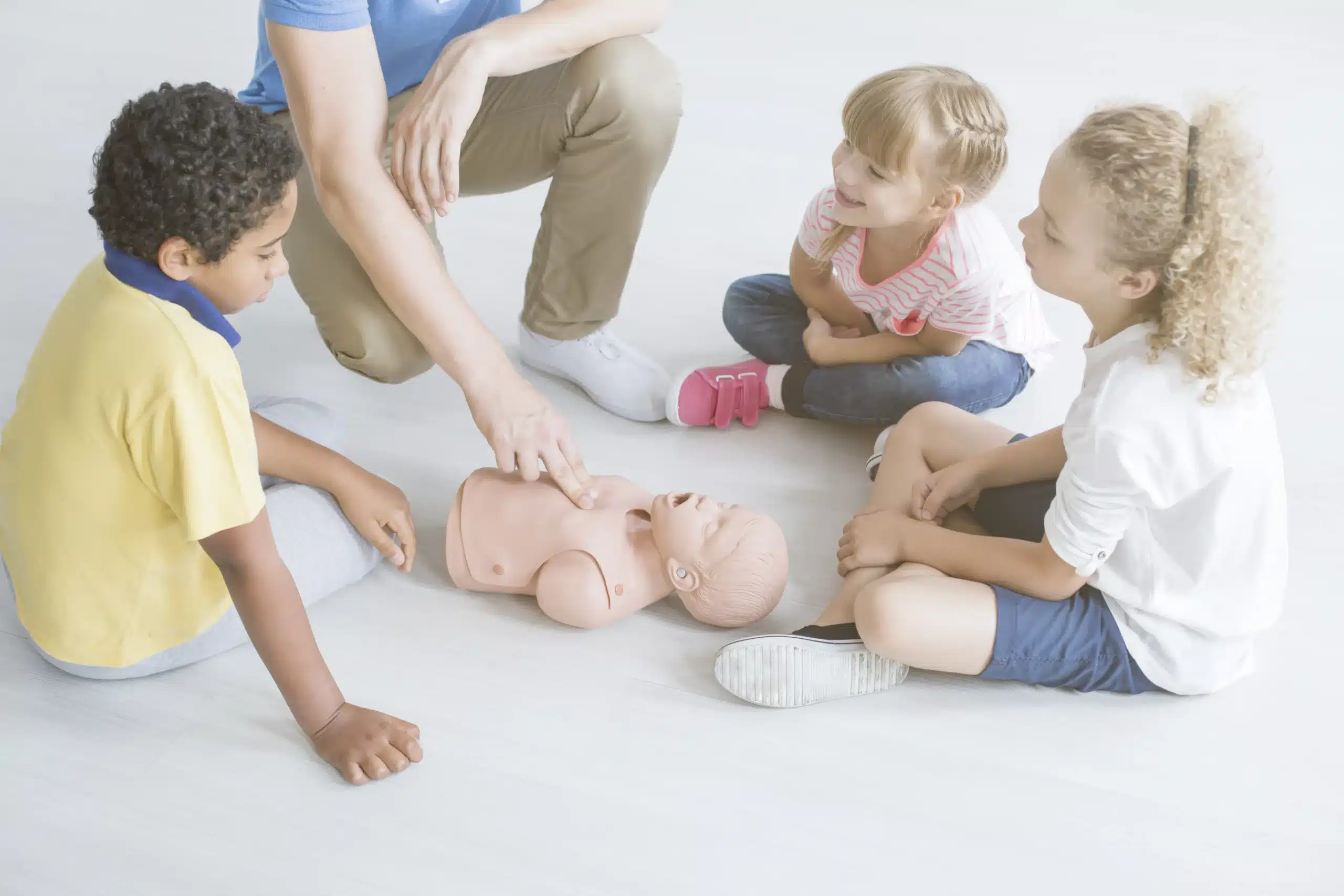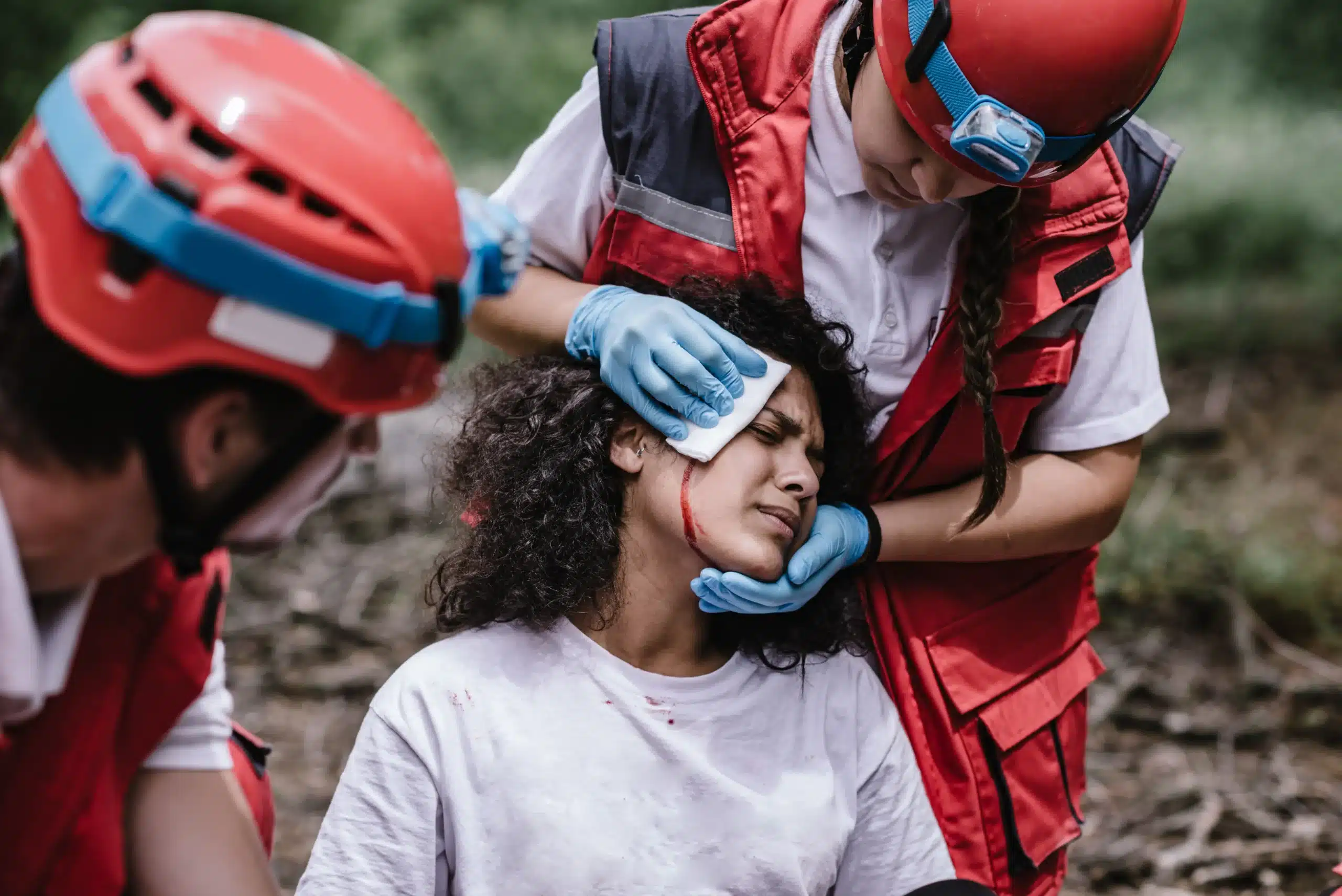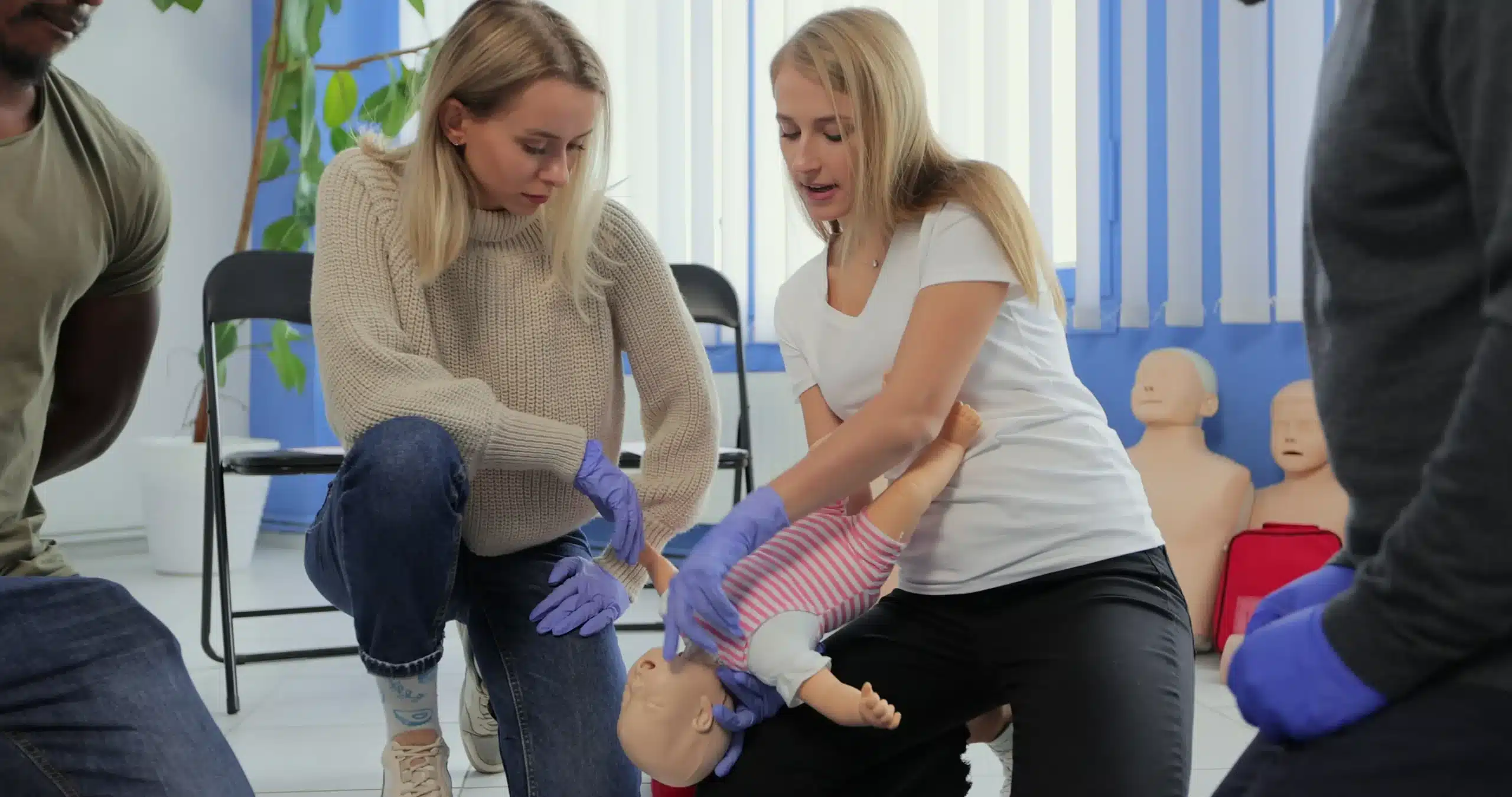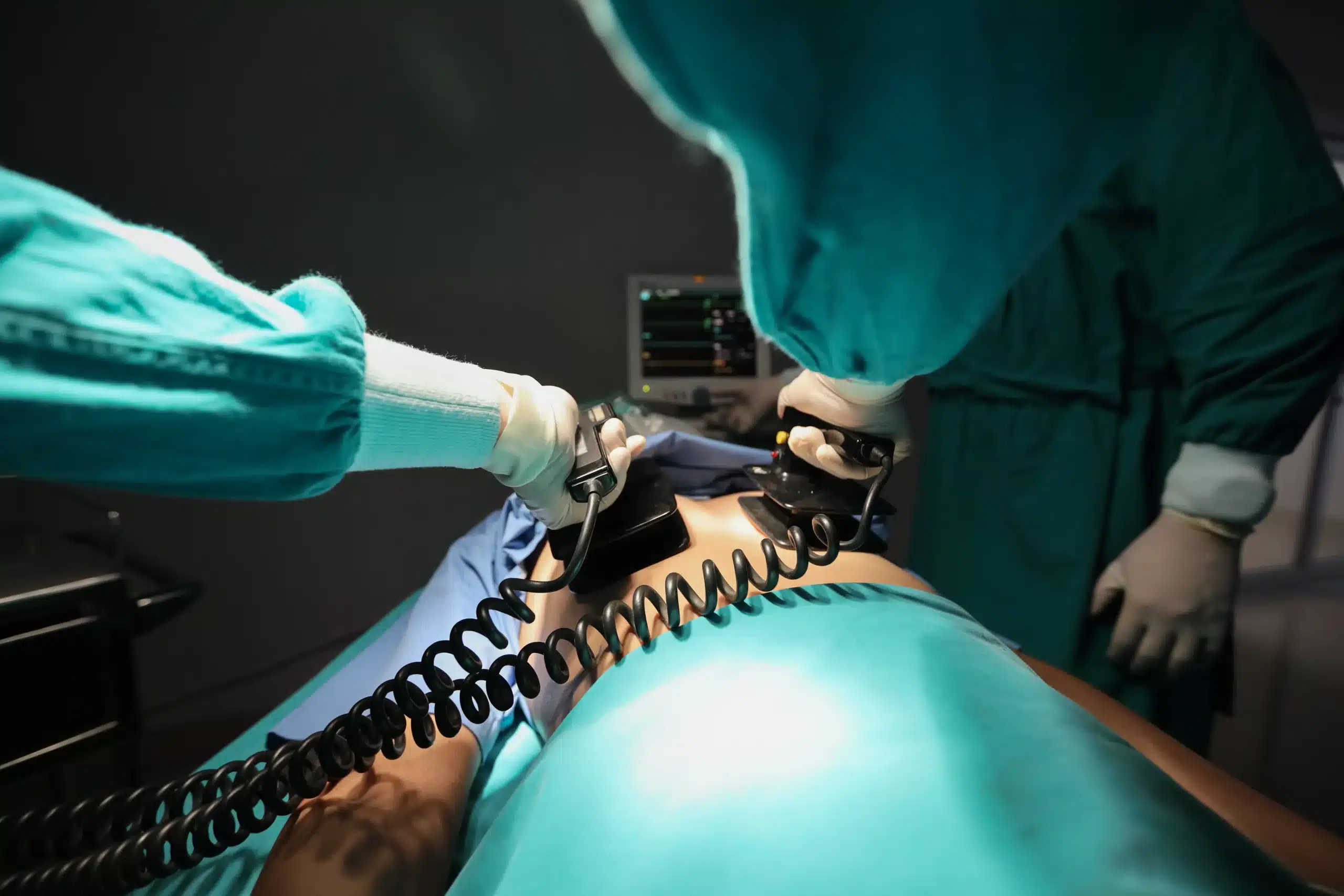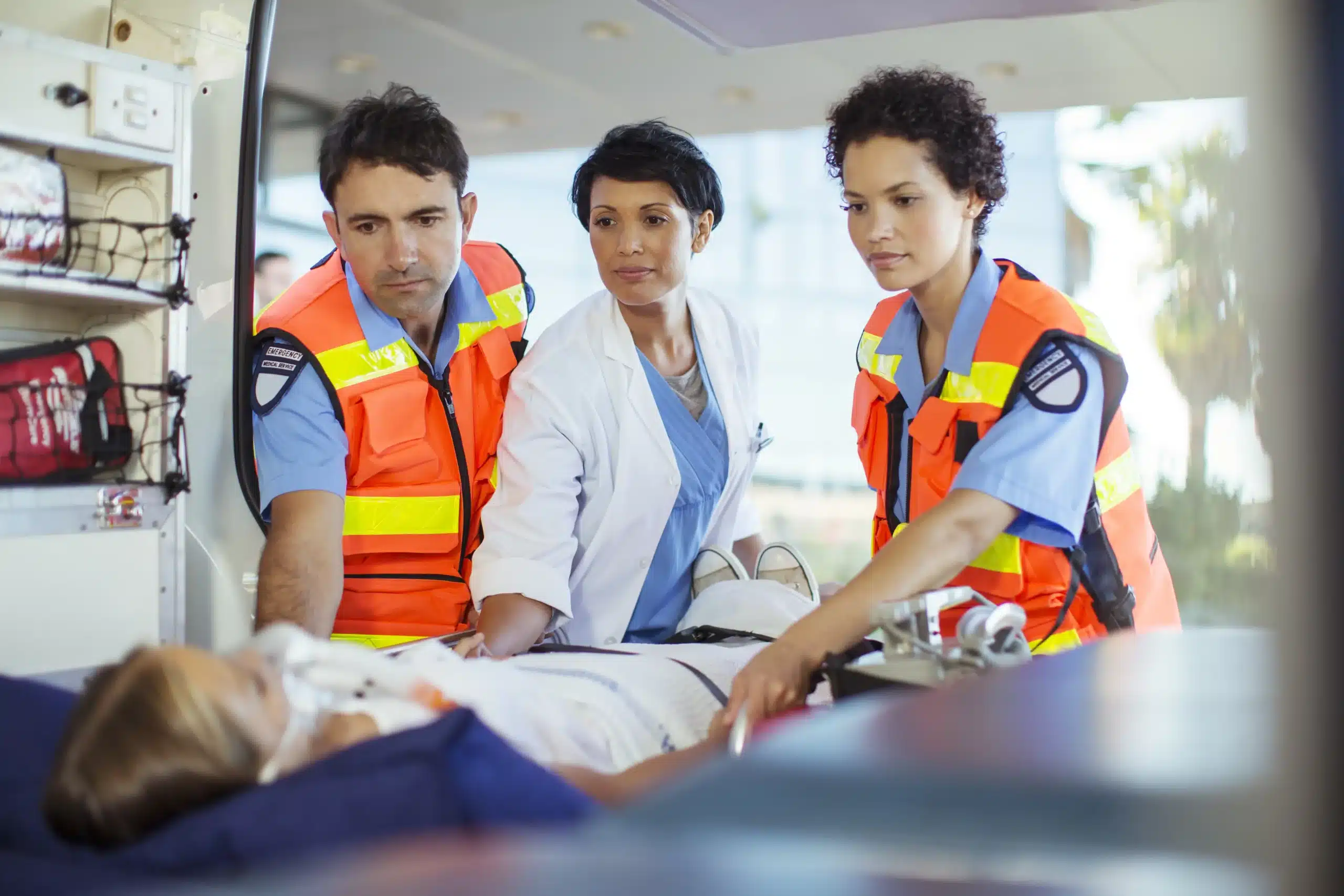Emergencies can happen anytime, anywhere. Being equipped with life-saving skills like CPR can give you the confidence to act quickly and effectively when every second counts. This comprehensive guide explores the world of cpr courses in Livermore, providing you with the information you need to choose the right course, find reputable training providers, and understand what to expect during your training. Whether you’re a healthcare professional, a childcare provider, or simply someone who wants to be prepared, this guide will help you find the perfect CPR course in Livermore, Dublin, or Mountain House.
Key Takeaways
- Find the right CPR class for you: Livermore offers various CPR and first-aid courses, from basic community training to advanced certifications for healthcare providers. Consider your specific needs and choose a course that aligns with your goals.
- Choose quality instruction and certification: Select a training provider that offers AHA-certified courses and experienced instructors to ensure your training meets national standards and provides a valid certification.
- Maintain your skills: CPR requires ongoing practice and recertification. Take advantage of refresher courses and available resources to stay proficient and prepared for emergencies.
What are CPR Courses in Livermore?
CPR courses equip you with the skills to respond to emergencies and potentially save lives. Livermore offers a variety of CPR courses designed for everyone from healthcare professionals to community members. Let’s explore what these courses cover and why certification is important.
Available Life-Saving Courses
Livermore provides a range of CPR courses covering essential life-saving techniques. You’ll find options for CPR, Basic Life Support (BLS), Advanced Cardiovascular Life Support (ACLS), and Pediatric Advanced Life Support (PALS), plus comprehensive First Aid training. These courses are readily available through various providers like Safety Training Seminars, often with flexible scheduling. Many providers also offer these courses in surrounding Northern California cities, making them accessible to a wider audience. For childcare providers, specialized courses like the EMSA Child Care Health & Safety program are also available.
Certification and Accreditation
CPR certification is essential, especially for those working in healthcare or emergency response. Most CPR courses in Livermore are certified by the American Heart Association (AHA), ensuring your training meets nationally recognized standards. This accreditation gives you widely accepted credentials. After completing your course and passing the skills test, you’ll receive a certification card, often the same day. These certifications are typically valid for two years, after which you’ll need recertification to stay up-to-date and maintain your skills. This ongoing training ensures you’re always prepared to help in emergencies.
Best CPR Training Providers in Livermore
Finding the right CPR training provider is crucial for receiving high-quality instruction and obtaining a valid certification. Here are some of the top CPR training providers in Livermore:
Safety Training Seminars
Safety Training Seminars in Livermore offers a comprehensive range of American Heart Association (AHA) courses, including BLS, ACLS, PALS, CPR, and First Aid. They also provide specialized training like the EMSA Child Care Health & Safety program and offer discounts for group classes. For groups, their discount page outlines how you can save on training costs. If you work in childcare, their EMSA training is a must. Their commitment to excellent customer service and competitive pricing makes them a popular choice. Plus, certifications are valid for two years. Check out their CPR and First Aid page for more details. They also offer an innovative RQI program for quick certification and have a low-price guarantee.
CPR Education
CPR Education provides AHA-certified CPR and first-aid training in Livermore. They offer courses for individuals, groups, and businesses, with flexible scheduling options to accommodate various needs. Their focus is on delivering practical skills and knowledge to prepare participants for real-life emergencies. Learn more about their Livermore training options.
Bay Area CPR
Bay Area CPR, in collaboration with Safety Training Seminars, offers a range of AHA-certified courses, including BLS, ACLS, PALS, and First Aid. They provide daily classes and can also conduct group training at your location. This flexibility makes them a convenient option for individuals and organizations. Explore their course offerings in Livermore.
American Heart Association
The American Heart Association (AHA) sets the standards for CPR and emergency cardiovascular care. While they don’t directly provide classes, they authorize training centers like those mentioned above. You can find more information about their CPR training programs and resources on their website.
Red Cross
The American Red Cross is another reputable organization offering CPR and AED training. They provide certification classes throughout California, including Livermore. Their focus on affordability and accessibility makes them a good option for individuals seeking comprehensive training. Find a Red Cross CPR class near you.
What to Expect in a CPR Class
So, you’ve decided to take a CPR class—fantastic! Knowing what to expect can help you feel prepared and confident. Here’s a glimpse into a typical CPR class:
Class Length and Format
CPR classes are designed to fit various schedules. You’ll find classes running daily, with options for different levels, from basic CPR to more advanced certifications like ACLS and PALS. Many providers, including Safety Training Seminars, offer convenient on-site group training for businesses. This can be a great option for workplaces looking to certify multiple employees at once. You can find more information about CPR class schedules and formats for the Livermore area on the Bay Area CPR website.
Hands-on Practice
CPR is a physical skill, so expect hands-on practice. You’ll work with training mannequins to practice chest compressions, rescue breaths, and other essential techniques. The physical nature of CPR training might cause minor strain on your hands, wrists, and arms. If you have any pre-existing conditions, it’s wise to chat with your instructor beforehand. Most providers are happy to discuss any concerns and offer rescheduling options if needed. Check out Safety Training Seminars for their flexible scheduling options.
Provided Materials and Resources
Your CPR class will provide all the necessary materials. This typically includes a student manual and access to online resources. High-quality CPR training often incorporates feedback devices, which provide real-time feedback on the depth and rate of your compressions. The American Heart Association emphasizes the importance of these devices in improving CPR performance.
Instructor Qualifications
Certified instructors lead CPR classes. Look for classes taught by instructors certified by reputable organizations like the American Heart Association. CPR Education in Livermore is one example of a provider offering AHA-certified training, ensuring your instruction meets national standards.
Feedback Device Usage
Feedback devices play a crucial role in modern CPR training. These devices provide immediate, objective feedback, helping you refine your technique and build confidence. Studies show that students using these devices are more engaged and achieve better CPR quality. This real-time feedback is invaluable for preparing you to respond effectively in a real-life emergency.
CPR Class Costs & Scheduling
Finding the right CPR class often involves balancing cost and convenience. Let’s break down what you can expect regarding pricing and scheduling for CPR courses in Livermore.
Course Costs
CPR certification classes in Livermore are generally affordable, averaging around $19.95. The final price depends on the specific course and the training provider. A basic CPR course might be less expensive than a combined CPR/First Aid class or a more advanced course like ACLS. Check with different providers like Safety Training Seminars for their latest pricing and any current special offers.
Group Discounts & Special Offers
If you’re coordinating training for a group, look for providers offering group discounts. Many CPR training centers in Livermore, including Safety Training Seminars, offer reduced rates for group bookings. This makes it a cost-effective way to train multiple people at once, which is helpful for businesses, schools, or even families.
Scheduling Options
CPR classes in Livermore are typically offered daily, accommodating various schedules and skill levels. Most providers offer flexible scheduling options, including weekend classes, evening sessions, and accelerated courses. Check with local providers like Bay Area CPR to explore available schedules.
On-site Business Training
For businesses in Livermore, on-site training is a convenient option. Several CPR training providers will come directly to your office, which can save your employees time and travel expenses. This minimizes workday disruption and ensures everyone can participate. Providers like CPR Edu specialize in on-site training, tailoring the experience to your specific industry and team size.
Choose the Right CPR Class
Finding the right CPR class means understanding your needs, comparing available courses, and considering factors like format and renewal options. Let’s break down how to choose the best fit for you.
Assess Your Needs & Goals
Before searching for a CPR class, think about why you need this training. Are you a healthcare professional required to maintain specific certifications like ACLS? Or are you a parent wanting to learn basic CPR and First Aid for peace of mind? Understanding your goals will guide you toward the right training level. If you’re unsure which course aligns with your profession, check with your employer or licensing body.
Compare Course Offerings
CPR and First Aid training isn’t one-size-fits-all. Livermore offers various courses, from basic life support for the community to advanced certifications for healthcare providers. Explore the specifics of each course, including the skills taught and the target audience. This will help you narrow your options and select a class that meets your requirements.
Online vs. In-Person Training
CPR training comes in different formats. Traditional in-person classes provide hands-on practice and direct interaction with instructors. However, if your schedule is packed, blended learning or online options like the RQI program might be a better fit. RQI offers shorter, more frequent sessions that can improve long-term skill retention. Consider which learning style suits you best and whether your workplace requires a specific training format.
Certification Renewal
CPR certifications typically expire after two years. Staying up-to-date with the latest guidelines and techniques is crucial for providing effective care in emergencies. Look for providers like Dublin CPR Classes that offer renewal courses to refresh your skills and maintain your certification. Set reminders for your renewal date to avoid lapses in your qualifications.
Specialized Courses (e.g., EMSA Child Care Health & Safety)
Beyond general CPR and First Aid, specialized courses cater to specific needs. For those working in childcare, the EMSA Child Care Health & Safety program provides essential training. This program covers pediatric-specific first aid and CPR, along with other health and safety topics relevant to childcare settings. If you work with children, this specialized training can improve your preparedness and ensure you can respond effectively to emergencies involving young ones.
Get the Most Out of CPR Training
CPR training is a valuable skill, and getting the most from your course ensures you’re prepared for real-life emergencies. Here’s how to maximize your learning experience:
Prepare for Class
Before your CPR class, familiarize yourself with the American Heart Association’s resources on feedback devices. Understanding their role in improving CPR quality and consistency can help you approach the training with a focused mindset. This preparation allows you to concentrate on mastering the techniques during the hands-on portions of the class.
Continuing Education
Beyond the initial training, continuing education is key to maintaining proficiency. RQI training, with its emphasis on quarterly refresher sessions, offers a practical approach to combat skill decay. These regular refreshers reinforce learned techniques and keep your skills sharp, ensuring you’re always ready to respond effectively.
Maintain Your Skills
Consistent practice is crucial for retaining CPR skills. Studies highlight the importance of feedback devices for enhancing the quality of CPR, especially for first-time trainees. Actively seek opportunities to practice with these devices, even outside of formal refresher courses. This ongoing practice builds muscle memory and reinforces proper technique, boosting your confidence in real-world scenarios.
Recertification Importance
Regular recertification isn’t just a formality; it’s critical for maintaining your CPR skills and staying up-to-date with the latest guidelines. Targeted feedback during recertification courses helps refine your technique and ensures you’re providing high-quality CPR in emergencies. Prioritize recertification to keep your skills current and your confidence high.
Related Articles
- CPR Certification in Livermore: Your Complete Guide – Livermore CPR Classes
- CPR Classes in Livermore: Which Course Is Right for You? – Livermore CPR Classes
- Online CPR Classes in Livermore: Your Guide – Livermore CPR Classes
- Why CPR is Essential in Healthcare (and How to Get Certified)
- Pediatric CPR & First-Aid Training in Livermore – Livermore CPR Classes
Frequently Asked Questions
How much do CPR classes in Livermore cost? CPR class costs in Livermore typically average around $19.95, but prices can vary based on the specific course, the training provider, and whether you’re taking a basic CPR class, a combined CPR/First Aid class, or a more advanced course like ACLS. It’s always a good idea to check with various providers for their current pricing and any special offers they might be running.
What should I expect during a CPR class? Expect a mix of instruction and hands-on practice. You’ll learn essential techniques like chest compressions, rescue breaths, and how to use an AED. A significant portion of the class involves practicing these skills on mannequins, and you’ll receive guidance and feedback from certified instructors. Classes also cover important topics like recognizing the signs of a heart attack or stroke and how to respond appropriately.
How often do I need to renew my CPR certification? CPR certifications are typically valid for two years. To maintain your skills and stay current with the latest guidelines, it’s essential to recertify before your current certification expires. Many providers offer recertification courses that cover essential updates and allow you to practice your skills.
Are online CPR courses available in Livermore? Yes, online and blended learning CPR courses are available in Livermore, offering flexibility for those with busy schedules. While online courses provide a convenient way to learn the cognitive aspects of CPR, it’s important to remember that hands-on practice is crucial for mastering the physical skills. Some online courses incorporate in-person skills sessions to ensure you gain practical experience.
What’s the difference between CPR and First Aid training? CPR focuses specifically on life-saving techniques for cardiac emergencies, such as chest compressions and rescue breaths. First Aid training covers a broader range of skills, including how to treat injuries like cuts, burns, and sprains, how to manage medical emergencies like allergic reactions and seizures, and how to provide basic life support until professional help arrives. Many providers offer combined CPR and First Aid courses, which provide comprehensive training in both areas.
